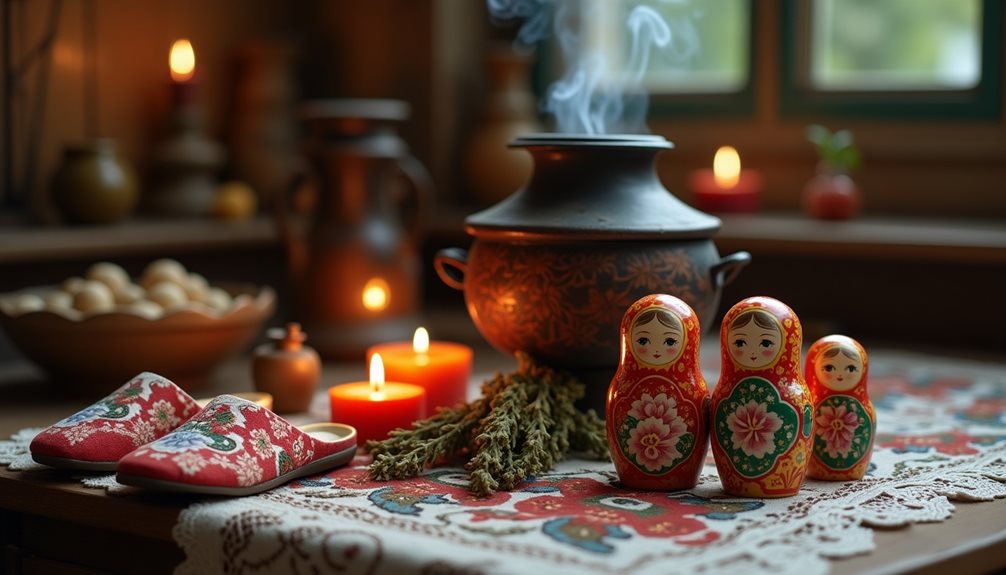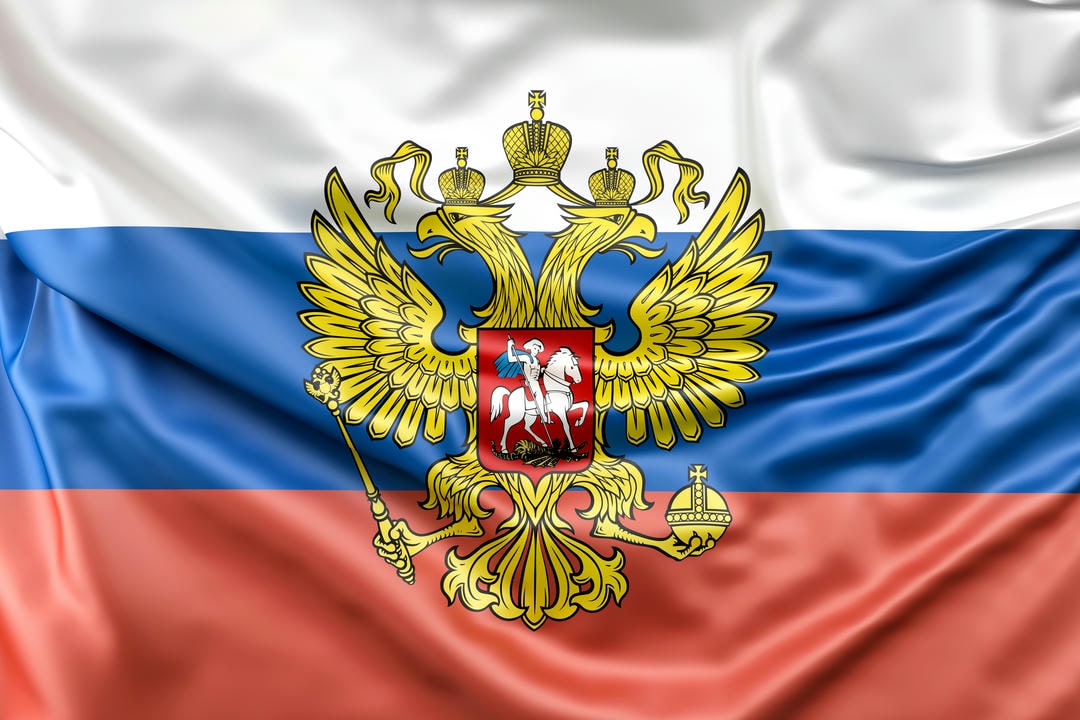Russian culture presents a fascinating blend of deep-rooted traditions and complex social dynamics. Its unique expressions, such as the reserved smile, often reveal underlying emotions. The intertwining of religion with national identity plays a significant role in shaping societal values. Additionally, gender roles and ethnic diversity contribute to a rich cultural landscape. As one navigates these aspects, questions arise about the resilience and adaptability of Russian society in the face of modern challenges. Russia is a country of rich history, deep traditions, and unique perspectives. For many foreigners, Russian culture might seem mysterious or even misunderstood. To help bridge the cultural gap, here are some interesting, positive facts about Russian customs and values—covering everything from attitudes toward smiling to family life and traditions.
Smiling: Sincerity Over Formality

In Russian culture, the meaning and use of a smile are quite different from what many foreigners, especially those from Western countries, might expect. In much of the West, smiling is a frequent gesture used to express politeness, friendliness, or to make social situations more comfortable. People often smile at strangers, in shops, during business transactions, and in many day-to-day interactions. In Russia, however, a smile is not a routine part of social etiquette. Instead, it is reserved for moments of genuine happiness or connection.
For Russians, a smile is seen as something that should be sincere and heartfelt. If someone smiles, it almost always means they truly feel happy, amused, or close to the person they are with. Smiling without a good reason can be viewed as insincere or even foolish. This idea is summed up by an old Russian proverb: “Смех без причины — признак дурачины,” which means “Laughing for no reason is a sign of foolishness.” In other words, showing an emotion like happiness in public without a real reason may seem strange or even suspicious.
This approach is rooted in Russia’s history and the value placed on straightforwardness and honesty. Openly displaying emotions that are not genuinely felt can be seen as dishonest or manipulative. During challenging times in Russian history—such as wars or political upheaval—stoicism was often necessary for survival, and emotional restraint became a cultural norm. As a result, Russians save their smiles for situations where they truly mean it, usually with close friends or family members with whom they feel safe and connected.
Foreigners sometimes misinterpret this as coldness or lack of friendliness. In reality, it reflects a cultural preference for genuine emotional expression over automatic politeness. When Russians do smile at you, it is a sign of real warmth and trust—something to be appreciated rather than taken lightly. For visitors, it’s helpful to remember not to take a lack of everyday smiling personally. Instead, value the smiles you do receive; they mean you’ve made a meaningful connection. By understanding and respecting this cultural difference, it’s easier to appreciate the depth and sincerity behind a Russian smile.
Relationships: Loyalty and Depth
In Russia, relationships are shaped by longstanding cultural norms and traditional values. Loyalty and emotional sincerity are highly prized in both romantic and platonic connections. Russians place great importance on building trust, often taking time to develop deep and enduring relationships. Once established, these bonds are marked by unwavering support and a willingness to go above and beyond for loved ones.
Traditionally, men are viewed as the primary providers, while women are seen as the heart of the home, managing household responsibilities and nurturing family ties. Despite the growing presence of women in the workforce, these roles remain influential in many households. Emotional closeness is central—love is often cited as the main motivation for marriage and long-term commitment, rather than purely practical concerns.
![]()
Friendship: Building Trust Slowly
Russian friendships develop gradually but are exceptionally strong. The saying “душа нараспашку” (“an open soul”) captures the spirit of Russian friendship: once trust is earned, friends are willing to share deeply personal thoughts and feelings. A true friend is considered part of one’s inner circle, sometimes as close as family. Russians value loyalty, reliability, and mutual support in their friendships, often helping each other during life’s challenges.
Family: The Heart of Russian Life
Family stands at the center of Russian society. Close ties between generations are common, with grandparents often playing an active role in raising children and passing down family traditions. Respect for elders is deeply ingrained; younger generations frequently seek advice from parents or grandparents when making important decisions.
Multi-generational gatherings are a cherished tradition, especially during holidays and significant life events. Extended family members maintain strong connections, providing emotional and practical support in times of need. The importance of family unity is reflected in everyday life—many Russians stay connected with relatives living in different cities or regions, reinforcing a sense of belonging and continuity.
In Russian culture, family values such as loyalty, respect for elders, and emotional closeness form the foundation for personal relationships. These traditions help maintain strong bonds across generations and contribute to a supportive community structure rooted in trust and mutual care.
Superstitions in Russian Culture: Their Role and Meaning

Superstitions are not just quirky customs in Russia—they are an essential part of daily life and have shaped the national character for centuries. To truly appreciate Russian culture, it’s helpful to understand how these beliefs continue to influence people’s actions, decisions, and even language.
Everyday Superstitions: Practical Examples
Many Russian superstitions are woven into daily routines:
- Whistling Indoors: It is widely believed that whistling inside the house will make money “whistle away.” Out of respect for household prosperity, Russians avoid this harmless-seeming habit.
- Sitting Before a Journey: Before embarking on a trip, Russians often sit down in silence for a minute. This tradition is thought to ensure a safe journey and is still practiced by families across the country.
- Don’t Shake Hands Over a Threshold: The threshold of a home is seen as a dividing line between worlds. Shaking hands or passing things over it is avoided, as it is said to invite disagreement or bad luck.
- Returning for Forgotten Things: If you forget something and have to return home, you should look in the mirror before leaving again. This is believed to ward off misfortune.
Roots in History and Collective Memory
These customs aren’t random—they come from centuries-old beliefs aimed at protecting individuals and families from harm. In rural areas and big cities alike, such traditions have helped people cope with uncertainty, offering clear “rules” for everyday situations.
During times of hardship, when much seemed out of people’s control, superstitions provided comfort and a sense of agency. Even now, many Russians follow these rules out of habit or respect for elders, passing them down through generations.
Superstitions are part of the Russian soul—a blend of practicality and mysticism. They reflect the importance Russians place on caution, respect for ancestors, and family unity. Foreigners who visit Russia will notice that these traditions are carried out with both seriousness and humor, often sparking lively conversations.
Why Learn These Customs?
For anyone interested in Russian culture, understanding superstitions is a way to connect more deeply with local people. It shows respect for their history and helps avoid misunderstandings. For example, giving an even number of flowers is only appropriate at funerals; at birthdays or celebrations, always choose an odd number.
Interesting Facts
- Spilled Salt: Spilling salt is considered bad luck, but throwing a pinch over your left shoulder can “undo” the misfortune.
- Broken Mirror: Breaking a mirror is said to bring seven years of bad luck—similar to beliefs in other countries.
- Birds at the Window: If a bird taps on your window, it’s sometimes taken as a sign of news on the way.
Russian superstitions are much more than old wives’ tales—they are a living element of cultural identity that enriches daily life. By learning and respecting these customs, foreigners can gain insight into the Russian mindset and build stronger connections with locals. Far from being mere curiosities, these beliefs help keep Russian heritage alive and relevant in the modern world.
Traditions: Rich and Welcoming
Russian traditions are woven into every part of daily life, shaping a culture that is both rich and genuinely welcoming. Seasonal festivals like Maslenitsa, where families gather to eat pancakes and bid farewell to winter, are not just colorful celebrations but a reflection of the Russian spirit—joyful, inclusive, and deeply rooted in history. The grandeur of New Year’s Eve, the most anticipated holiday on the Russian calendar, unites people across vast distances and backgrounds, bringing together friends and families in a spirit of hope, generosity, and renewal.
Hospitality in Russia goes far beyond polite gestures; it is an art form and a duty. Offering bread and salt to guests is more than tradition—it’s a symbolic act of friendship, respect, and trust that dates back centuries. The iconic samovar, always present on the table, isn’t just about tea; it represents warmth and togetherness. Guests are treated with genuine care: tables overflow with homemade dishes, and hosts insist on second or third helpings not out of formality, but because sharing food is one of the deepest ways to express care and forge bonds. Declining an offer is almost unthinkable for many Russians, as it could be seen as refusing their goodwill.
Despite a history punctuated by war and adversity, Russians have emerged with a remarkable resilience and an ability to find light even in the darkest times. Humor is a national treasure. “Anekdoty”—short, witty jokes—are exchanged everywhere: at the dinner table, in the workplace, even on public transport. This sense of humor is sharp but never cruel, helping people endure hardship and build community through shared laughter. The Russian ability to meet challenges with wit and optimism is legendary.
Nature holds a special place in the Russian soul. Even those who live in sprawling cities cherish their connection to the countryside. The “dacha”—a small summer house outside the city—is more than a weekend escape. It’s a symbol of self-reliance, family unity, and a slower pace of life. Tending gardens, gathering mushrooms in the forest, or simply sitting by a river are rituals that nurture both body and spirit. For many Russians, time spent in nature is sacred, a vital counterbalance to urban life.
Russia’s cultural contributions are known around the world—not only for their brilliance but for their accessibility. Masterpieces by Tolstoy or Pushkin are part of everyday conversation, not just distant academic subjects. Ballets by Tchaikovsky and operas by Rimsky-Korsakov are enjoyed by people from all walks of life. Poetry readings, art exhibitions, and concerts are woven into the fabric of society; cultural literacy is valued not as a status symbol, but as a shared heritage that unites people.
Modern Russia stands at a crossroads between tradition and innovation. In cities like Moscow and Saint Petersburg, centuries-old cathedrals sit side-by-side with futuristic skyscrapers and vibrant street art. Russians are proud of their past but not chained to it—they embrace change while holding fast to values like sincerity, loyalty, and deep family ties.
For foreigners, what stands out most is the authenticity of Russian relationships. Friendships are not formed quickly or superficially; they develop slowly but last a lifetime. Russians value honesty over politeness—what you see is what you get—and once trust is established, you become part of an extended family. The invitation to share tea isn’t just about the drink; it’s an opening to real conversation and connection.
To truly appreciate Russia is to look beyond stereotypes and see the warmth beneath the surface—the enduring love for tradition, family, humor, nature, and culture that makes Russian society both resilient and uniquely inviting.
Russian culture is built on sincerity, loyalty, family values, and a love for tradition—all wrapped in a spirit of resilience and warmth. By understanding these aspects, foreigners can better appreciate the unique charm and depth of Russia and its people.
Visiting or making friends in Russia? Remember: sincerity matters more than formal politeness, relationships take time but run deep, and you’ll always be offered tea—so don’t forget to enjoy it!





